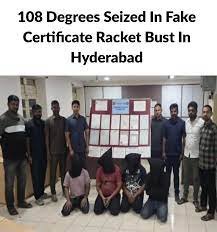Attacks on Journalists in India: Polis Project Report
The Polis Project, a New York-based non-governmental organization that investigates public issues, has published a special report on the violent attacks on journalists in India. It has been told in the investigation report that journalists in India face various types of violent incidents from arrest to murder in false cases, due to the continuous violent incidents, the profession of journalism in the country has become dangerous. Journalists are regularly bullied through false and fabricated allegations, reports The Polis Project. In many cases, even the journalist is arrested. Those who speak against the present government can be booked for sedition or under stringent laws like the Unlawful Activities (Prevention) Act (which unilaterally designates persons as terrorists without evidence), National Security Act . Journalists also remain at risk of being arrested under the Public Safety Act (PSA).
Its investigation by the Polis Project covers incidents of violence against journalists from May 2019 to August. The various incidents covered in the investigation are reflected in the attacks on journalists during the coverage. There were 51 incidents of violence against journalists in the country in Jammu and Kashmir, 26 during protests against the controversial Citizenship Amendment Act, during the Delhi riots in 2020 and 46 during the coverage of code cases. There have been violent incidents against about 10 journalists in the farmers’ movement against the controversial agricultural laws in the country. While there were incidents of violence against 104 journalists covering other subjects in different states across the country.
Suchitra Vijayan, who is associated with the project’s investigation report, says that the government system in India is adopting various tactics to prevent journalists from fulfilling their professional responsibilities. Many journalists are still in jail in the states of the country. Kerala journalist Siddiqui Kapoor was arrested in October last year when he was on his way to report the gang rape and murder of a woman in Hathras, Uttar Pradesh. The Uttar Pradesh government has imposed serious provisions against the journalist on Siddiqui Kappan for inciting hatred between different sects, hurting religious sentiments, conspiracy and sedition. Suchitra Vijayan says, “The present government is silencing journalists in India by threatening, arresting or registering fake cases or by imposing all kinds of sanctions. “The journalists who speak against the wrong decisions of the government are accused of sedition and journalists have to face continuous arrest.”
The Polis Project’s investigation report states that the Unlawful Activities Prevention Act (UAPA), the National Security Act (NSA), and the Public Safety Act (PSA) are against journalists who criticize government policies and practices. The government of the country files cases against journalists under strict rules. Due to which many times journalists are not able to get bail for months without any legal action. Suchitra Vijayan of the Police Project says, many times journalists are threatened with death and women journalists are even threatened with rape. The growing media restrictions and violence against journalists in India pose a great threat to the freedom of the press.
If the current situation is looked at seriously, then it is known. How difficult it has become for a journalist to work in his profession. Cases are often registered against journalists who question the government in the country or highlight the shortcomings. With some prosecutors applying Section 124A of the Penal Code, criminal charges are often used to suppress and silence journalists who criticize the authorities, under which “sedition” is punishable by life imprisonment. Journalists reporting sensitive issues and big scams are attacked, openly beaten up by miscreants and in some cases journalists are killed for their work. It is important to understand the everyday incidents that happen to journalists, in which journalists continue to be the target of violence. The most important thing to note is that these cases are never registered. But the threat of violence against journalists in the country remains constant.














… [Trackback]
[…] Information on that Topic: ajaykohli.com/index.php/2022/08/18/attacks-on-journalists-in-india-polis-project-report/ […]